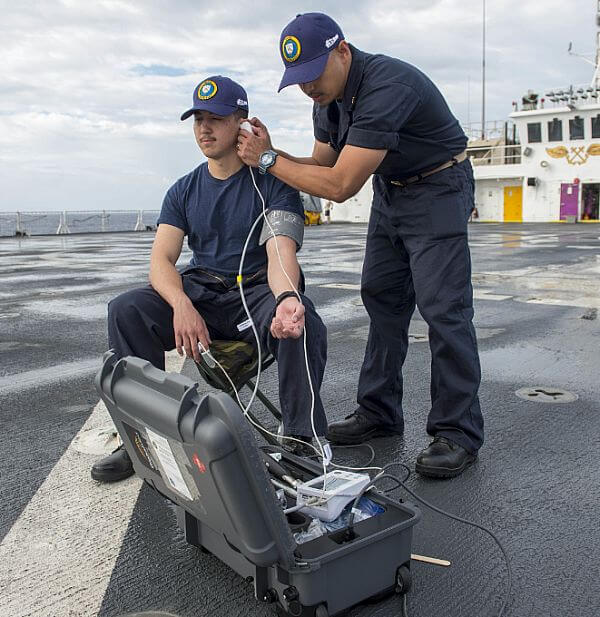
Military families face many challenges, especially when they need to move every few years. But when one family member has special needs, a new set of considerations come into play – particularly regarding service member assignments.
When a service member is assigned overseas, all family members must undergo Family Member Travel Screening. This screening ensures any special medical and educational needs can be met at the assignment location. For example, if a service member’s child is on the autism spectrum, the Department of Defense’s Exceptional Family Member Program (EFMP) is utilized as the guiding regulation.
EFMP makes sure that military families are stationed in locations where those with special needs can get the help they need. A range of chronic medical or behavioral conditions can qualify, such as diabetes, multiple sclerosis, a peanut allergy or a learning disability. The program helps the family navigate available medical and educational resources and provides referrals and non-clinical case management.
EFMP Challenges
EFMP knows the right medical services are not always available in overseas and remote locations. While military mission requirements shape every service member’s assignment, the program makes sure that each family member’s needs are factored into the assignment process. The program can also lighten the service member’s burden, so they can focus on mission-related responsibilities. Registering with EFMP is not optional; service members who fail to register could be subject to disciplinary action.
Military families have options when a member’s medical or educational needs conflict with a new assignment. The service member can request an unaccompanied assignment to the new location while the family lives apart during the assignment, or the service member can decline that opportunity and wait for a new one.
At the same time, some military members worry this can limit future career opportunities. Active duty members who want to move forward in their career goals could be denied a position, and potential promotion, if the location doesn’t work with their family’s medical needs. Even in the best circumstances, the EFMP program involves considerable coordination work for the military and often difficult decisions for families.
Other federal agencies that assign personnel and eligible family members abroad have programs similar to the EFMP. Most are coordinated through a medical clearance process designed to align the patient’s medical needs with the clinical capabilities of the overseas assignment location. Yet these requirements can conflict with the staffing needs of the employing federal agency – forcing employees and their families to make very difficult decisions.
Telehealth Solutions
Telehealth can help many families with special medical and educational needs get the right care without restricting career opportunities. The service member’s geographic location becomes irrelevant because the patient can still connect virtually with world-class specialists and other providers anywhere in the world. For example, a patient at a remote military installation in Africa can receive real-time care from their medical specialist in the U.S. via telemedicine.
Advances in telemedicine technology mean providers can now deliver evidence-based virtual care, collaborate with specialists and perform research-based consultations that can be shown in a protocol-based plan. Sophisticated software and hardware telemedicine solutions integrate with ultrasounds, stethoscopes and other clinical peripheral devices. Providers can share images (MRI, CT, PET and others) and laboratory results in real time; they can also share health education resources. Behavioral medicine specialists can also use telehealth to securely assess, counsel and follow patients with sensitive issues, regardless of their location.
GlobalMed’s Commitment to Supporting the U.S. Military
While not every illness or condition can be treated virtually, GlobalMed’s telemedicine solutions can help many service members maximize their career opportunities while ensuring their families receive ongoing and expert care. Telemedicine brings world-class medical care to the patient and bridges the healthcare gap that a remote or overseas assignment may cause. This provides the military with a powerful resource to meet mission requirements – and allows the brave men and women who serve our nation greater opportunities to do so without increasing time away from their families.



Telehealth is mainly helping people during crisis and pandemics. People working in military needed to be taken care of. With the help of telehealth many soldiers are able to access to healthcare especially in remote areas. Thank you for providing this informative blog.